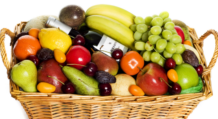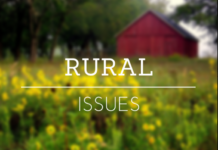The holiday season is quickly approaching and many of us are starting to feel the giving spirit. Many people struggle to pay bills, procure healthy foods, and maintain a healthy lifestyle. These are significant barriers which plague families and hit especially hard around the holidays. It is a noble gesture to reach out to agencies within our community to provide a helping hand. As the giving spirit swells in your heart, you may think it a good idea to go through your cabinets and donate some food items you have yet to use. This may seem like a great way to accomplish two things at once, but it is important to keep a few important things in mind when making the decision to donate food to local food pantries.
No one wants to waste food, so the temptation to donate expired food is understandable. While food pantries do not want to waste food, they also do not want to provide unsafe food to their patrons. Do not donate food that has exceeded its “best by,” “use by” or “sell by” date. It is best not to donate food past these dates because the food may be on the food pantry shelf for a while before it reaches the customer. The longer food items go past their “best by” dates, the more likely the foods are to be less fresh. This impacts taste of the food and may increase the risk of contamination.
Be sure to look over food containers before you put them in the donation box. Do not donate any canned food items that have been dented or show any signs of rust or any evidence of leaking, swelling, or bulging ends. If you see any signs of damage on the container, throw the food item out. If the container is equipped with a tamper-resistant seal, be sure to check for signs of tampering. If the seal is broken, cracked, or chipped, throw it out. Do not donate home-canned or home-prepared foods. Because of the large variation in food safety methods employed by home canners, food banks and pantries will not accept home-canned items. Furthermore, home baked foods may have a shorter shelf life than commercially prepared items and present additional food safety risks.
Donate food in its original packaging. Packaging should be unopened and not damaged due to the risk of contamination during repackaging. It may be acceptable to donate some shelf-stable foods. Contact your local food banks and pantries to be sure they accept shelf-stable items. Banks and pantries must have adequate refrigerator and freezer space to safely store shelf-stable foods until they are distributed, so be sure to ask the right questions before donating dairy products, meats, and frozen foods.
Some food pantries accept fresh produce for donations but be sure to ask before you donate. For many types of produce, it is best not to wash them before donating because the extra moisture may promote spoilage. Keep fresh produce as cool as possible before donating, but do not freeze it. If possible, be sure to donate fresh picked produce and deliver it to the food bank or pantry for same-day distribution.
When you are thinking of foods to donate, try to make donations that would fill a healthy and safe plate based on MyPlate recommendations. Cash donations are a great way to contribute to food banks and pantries. Cash donations enable banks and pantries to buy food themselves, which can generally be done in bulk and at cheaper rates than individual consumers. These also helps to ensure banks and pantries can buy food items most needed by their clients.
Making contributions to support local charities is an important step to promote community vitality. Regardless of personal biases, it is important to understand that others struggle to pay the bills and benefit from the kindness of their community. It is not our place to judge the lives of others, especially when we have no knowledge of the circumstances under which others must live. The color of our skin, our position on the political spectrum, our individual identities, and all the superficial differences matter far less than our most important commonality: our humanity. I encourage you to give freely and without judgement. Not because you are Democrat or Republican. Not because you are black or white. Not because you are Christian or Muslim. Give because you are a human being. Give kindness. Give compassion. Most importantly, give love and give without any expectation of reciprocation.
Follow me on Facebook (www.facebook.com/AaronCSwankMPH) for information about health and wellness. For more information about safely donating foods, swing by the Extension offices or contact me via phone: (316)284-6930. Thanks for reading!
*Adapted from Donating Safe and Nutritious Food to Food Pantries and Soup Kitchens, Londa Nwadike, Ph.D, Kansas State University




